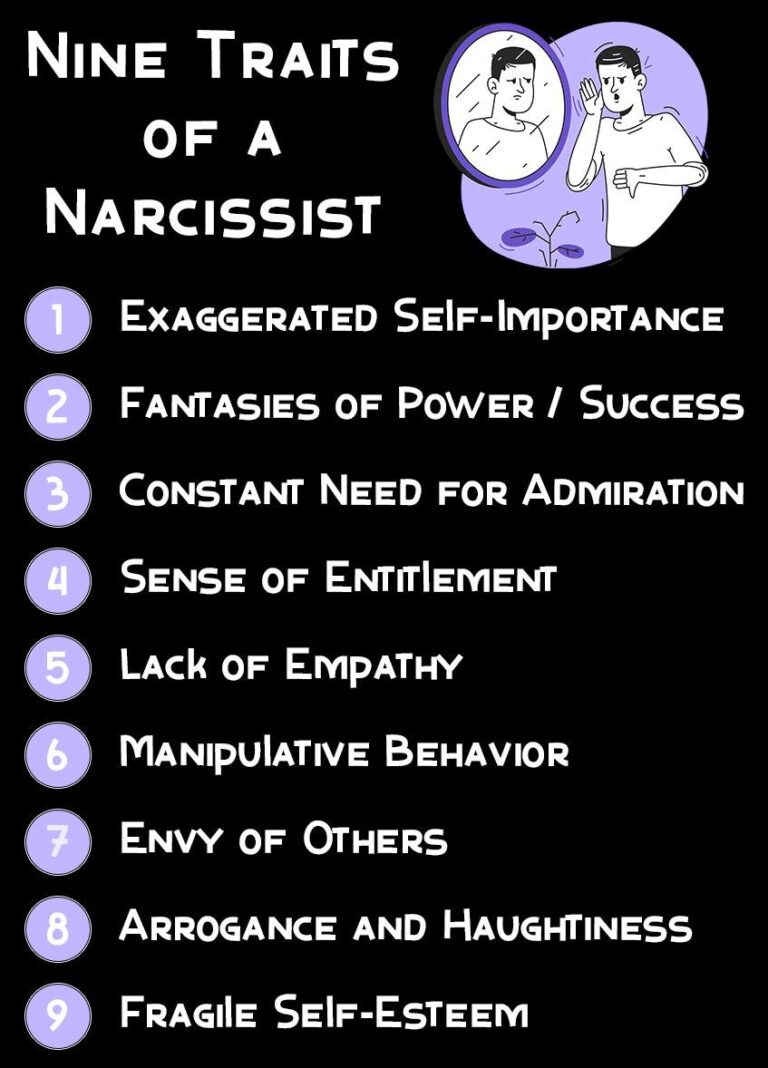When encountering someone whose sense of self seems larger than life, it’s natural to wonder what drives such an intense focus on oneself. Narcissistic personality traits are more than just occasional moments of vanity—they represent a deep-rooted pattern of behavior that shapes how individuals see themselves and interact with others. Understanding these common traits is essential, not only for identifying narcissistic tendencies but also for fostering healthier, more empathetic relationships. In this article, we will delve into the core characteristics that define a narcissistic personality, shedding light on this complex human behavior from a psychological perspective.
Table of Contents
- Understanding the Core Characteristics of Narcissistic Personality Disorder
- Recognizing the Impact of Narcissistic Behavior on Relationships
- Identifying Subtle Signs of Narcissism in Everyday Interactions
- Effective Strategies for Setting Boundaries and Managing Narcissistic Individuals
- Closing Remarks
Understanding the Core Characteristics of Narcissistic Personality Disorder
Narcissistic Personality Disorder (NPD) is characterized by a distinct pattern of behavior and thought that revolves around an inflated sense of self-importance and a deep need for excessive admiration. People with this disorder often display a lack of empathy, making it challenging for them to genuinely connect with others on an emotional level. Their self-esteem, paradoxically, can be extremely fragile, often masked by grandiosity and an exaggeration of achievements. This internal instability frequently leads to a constant quest for validation and control in interpersonal relationships.
Key traits commonly observed in individuals with NPD include:
- Preoccupation with fantasies of unlimited success, power, brilliance, beauty, or ideal love
- A strong sense of entitlement
- Exploitation of others to achieve personal goals
- Difficulty recognizing or respecting the feelings and needs of others
- Arrogant or haughty behaviors and attitudes
Understanding these characteristics is crucial for recognizing NPD not just as arrogance but as a complex psychological condition that impacts both the individual and those around them. What may appear as mere self-confidence often conceals deep-seated insecurities and emotional vulnerabilities.
Recognizing the Impact of Narcissistic Behavior on Relationships
Relationships entangled with narcissistic behavior often become battlegrounds of emotional manipulation, where one partner’s needs overwhelmingly overshadow the other’s. The constant cycle of idealization and devaluation can leave loved ones feeling confused, invalidated, and drained. It’s common for those affected to experience feelings of isolation, diminished self-worth, and chronic anxiety as they try to navigate the erratic dynamics imposed by a narcissistic individual. Emotional abuse, whether overt or subtle, undermines the foundation of trust, leaving long-lasting scars that can take significant time and support to heal.
Recognizing these patterns early on is crucial to safeguarding one’s emotional health. Some telltale signs include:
- Constant need for admiration: Narcissists require excessive praise and validation to maintain their fragile self-esteem.
- Lack of empathy: They often fail to understand or care about their partner’s feelings, prioritizing their own desires above all else.
- Manipulative behavior: Exploiting others to achieve personal goals without regard for emotional consequences.
- Entitlement: A pervasive belief that they deserve special treatment and unquestioning compliance from those around them.
Being aware of these traits empowers individuals to set healthy boundaries, seek necessary support, and ultimately reclaim control over their emotional well-being.
Identifying Subtle Signs of Narcissism in Everyday Interactions
Recognizing narcissistic tendencies often requires careful observation beyond explicit statements or overt behaviors. Pay close attention to how individuals consistently steer conversations back to themselves, dismissing others’ experiences or emotions. Subtle cues include a persistent need to be admired, often masked as humblebrags or downplayed achievements. Their reactions to criticism may be disproportionately intense, revealing an underlying fragile self-esteem. Additionally, you may notice a pattern where empathy seems selectively applied, primarily favoring those who serve their interests.
Watch for these hallmarks that subtly permeate daily interactions:
- Excessive charm: Initially engaging, but often used to manipulate or gain favor.
- Interrupting others: Demonstrates urgency to assert control or dominance in conversation.
- Minimizing others’ achievements: Phrases like “That’s nice, but…” subtly invalidate accomplishments.
- Lack of genuine listening: Responses feel rehearsed or self-centered rather than reflective.
Effective Strategies for Setting Boundaries and Managing Narcissistic Individuals
Establishing clear limits with narcissistic individuals is crucial for maintaining your emotional and mental health. Start by identifying your non-negotiables and communicating them confidently and calmly—avoid lengthy justifications, as narcissists often exploit these to manipulate or dismiss your boundaries. Remember, your boundaries are about protecting your space, not about changing their behavior. Use assertive language such as “I” statements (“I feel,” “I need”) to focus on your experience rather than making accusatory comments, which can trigger defensiveness or gaslighting.
- Remain consistent in enforcing your boundaries; inconsistency invites disrespect and confusion.
- Limit personal disclosures to avoid providing ammunition for manipulation.
- Prepare yourself emotionally for pushback or attempts to undermine your limits.
- Seek external support systems—friends, therapists, or support groups—to validate your experiences and reinforce your stance.
When managing interactions, practice detachment to maintain your equilibrium. Don’t engage in power struggles or attempts to “win” the conversation, as narcissists often view relationships as contests to dominate. Instead, redirect conversations back to your boundary or, if necessary, disengage altogether. Utilizing techniques such as the gray rock method—being unresponsive and uninteresting—can reduce their emotional leverage, making you less of a target. Ultimately, safeguarding your peace often means prioritizing your needs, even if it requires limiting or ending contact with the narcissistic person.
Closing Remarks
Understanding the common traits that define a narcissistic personality is essential, not only for recognizing these patterns in others but also for fostering healthier relationships and promoting self-awareness. While narcissism exists on a spectrum, identifying these characteristics can help us navigate interactions with empathy and boundaries. Being informed is the first step toward creating environments where respect and genuine connection thrive. As we continue to explore the complexities of human behavior, acknowledging and addressing narcissistic tendencies remains a crucial part of personal and collective growth.

